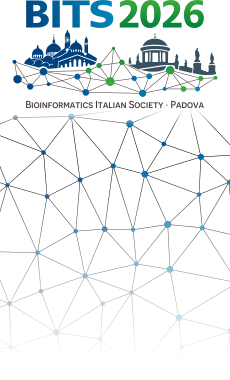6 PhD Studentships available at Italian Institute of Technology
submission deadline October 3, 2008
The Università degli Studi di Genova (www.unige.it) and the Italian Institute of Technology (www.iit.it) have made an agreement for a 3-year PhD School in Robotics, Neurosciences, Nanotechnologies and Drug Discovery.
The Italian Institute of Technology (IIT) is a research institution in Italy that after the start-up phase is currently almost complete. The fellowships assigned by IIT to the University of Genova are part of the start-up strategy of the Institute and have the specific goal of forming the first generation of IIT's research fellows.
Following the start of the Research Labs in the IIT's Headquarters in Genova Morego (Italy) and the appointment of the first scientists, this year's research topics are proposed by the Research Directors and their senior collaborators. The candidates are asked to prepare a research project of their choice with explicit reference to the Theme proposed. The soundness of the project will be part of the evaluation process and will be considered preferential for the choice of the individual scientific theme that will be made jointly by the tutor and the candidate.
This year's school activities will start in January 2009.
The Drug Discovery and Development department (directed by Prof. Daniele Piomelli) offers 6 PhD studentships concerning the field of COMPUTATIONAL DRUG DESIGN.
The corresponding Theme follows:
Theme 6.1: Modeling of membrane proteins
Tutor: Dr. Andrea Cavalli
N. available positions: 2
Nearly one-third of all genes in various organisms encode for membrane-associated proteins that play a fundamental role in life processes. In this respect, it is not surprising that membrane proteins also represent validated and innovative targets for the discovery of new drug candidates. Modeling of membrane proteins can provide new insights into structural features and functional mechanisms of such biological machines, and in turn open up new avenues to the discovery of small organic molecules able to modulate the biological functions regulated by these target proteins. The PhD student will use computational tools to study two main families of membrane proteins, G-protein-coupled receptors and ion channels. Homology modeling techniques (when required), molecular dynamics simulations, and molecular docking experiments will be carried out aimed at both obtaining new mechanistic insights into the members of these families, and designing new modulators for selected membrane proteins.
Theme 6.2: Design of disruptors of protein-protein interactions
Tutor: Dr. Giovanni Bottegoni - Dr. Matteo Masetti
N. available positions: 2
Interactions between proteins are at the heart of the cellular machinery, and designing molecules able to interfere with protein-protein interactions is an important challenge. However, detailed insights into the protein binding properties as well as efficient screening platforms are needed to identify small organic molecules able to disrupt interactions between proteins. In this respect, computational tools can be of a great help as they can be exploited to both disclose the molecular determinants of protein-protein interactions, and identify new chemical entities able to prevent the formation of and/or to disrupt protein-protein complexes. In detail, the PhD student will apply docking tools to predict the structure of protein-protein complexes and identify small organic molecules able to interfere with such complexes. Molecular dynamics simulations and/or metadynamics will also be used to sample the conformational space of the proteins involved in complex formation and identify conformations responsible for protein-protein interactions.
Theme 6.3: Data mining and virtual screening of compound libraries
Tutor: Dr. Walter Rocchia
N. available positions: 2
Large libraries of chemical compounds reflect the exponentially growing data-enrichment in drug discovery that trends towards fully automated solutions to study structure-activity relationships of molecules vs. their biological counterparts. The first step is the construction of databases (chemical libraries) of non-redundant compounds that can be then exploited for virtual screening experiments. In detail, the PhD student will apply computer science to construct a database of compounds either commercially or non-commercially available, which will be provided by national and international collaborators. The database will be then extended into a three-dimensional compound library containing low-energy conformations of all available molecules. All compounds will be finally screened against selected molecular targets (and/or pharmacophore models) to identify new lead candidates able to modulate the activity of a target protein.
For further details concerning the research project, please visit the following url:
http://www.iit.it/doctoral_school and/or contact: andrea [dot] cavalli [at] iit [dot] it
Società Italiana di Bioinformatica
Sede legale Viale G. Mazzini, 114/B – 00195 Roma
C.F. / P.IVA 97319460586
C.F. / P.IVA 97319460586
© 2003-16 • designed by esthos • powered by sciencedev




